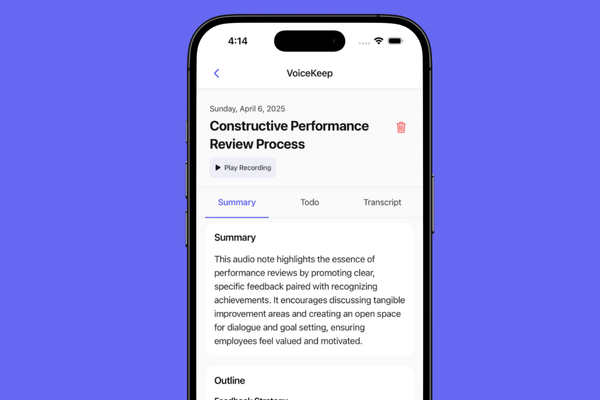Facebook is not only the number one social media platform, but it's also an exciting internet company! Their huge reach and reputation enable them to provide a myriad of useful apps to make life easier for their users.
What is an open-source project?
An open-source project is an officially registered project that is publicly available for use. This means that anyone else who takes the time to understand how it works can borrow, modify, and improve on them. Open-source projects are constantly becoming better. This is because nearly anyone can access these crucial tools to raise the programming level of any company or individual with the help of the software's plugin architecture.
In this article, we'll review some of these open-source projects including the ones from Facebook's own development team.
1. React

React is a JavaScript library for building user interfaces. Its central library, React.js, makes it easy to share the view across the whole application so that our render function has a single focus: generating a new version of the component tree instantaneously and efficiently in response to input changes from other components in the system. Facebook uses React Components to build its website frontend.
React Official Website: https://reactjs.org/
Open Source Code Link: https://github.com/facebook/react
2. PyTorch

PyTorch is a powerful and flexible framework for deep learning that is implemented in Python. It features such features, such as optimized implementations of popular algorithms, large computational graphs for GPUs and CPUs, and support for task graphs to easily associate different models with computations. Pytorch excels when one needs to create models at scale.
PyTorch Official Website: https://pytorch.org/
PyTorch Open Source Code: https://github.com/pytorch/pytorch
3. Jest

Jest is a JavaScript testing framework that helps you write and run tests for your JavaScript code. It's a great way to make sure your code is working as expected and to catch bugs early. Jest is easy to use and has a lot of features, so it's a great choice for any JavaScript developer.
Here are some of the benefits of using Jest:
- It's easy to use. Jest has a simple API that makes it easy to write tests.
- It's fast. Jest runs tests quickly, so you can get feedback on your code quickly.
- It's comprehensive. Jest has a lot of features, so you can test your code in a variety of ways.
- It's flexible. Jest can be customized to meet your specific needs.
If you're a JavaScript developer, I encourage you to check out Jest. It's a great way to make sure your code is working as expected and to catch bugs early.
Here are some of the things you can do with Jest:
- Write unit tests to test individual functions or modules.
- Write integration tests to test how different parts of your code interact with each other.
- Write end-to-end tests to test your entire application.
- Use Jest's built-in assertions to verify the results of your tests.
- Use Jest's coverage report to see how much of your code is being tested.
Jest is a powerful tool that can help you improve the quality of your JavaScript code. If you're interested in learning more about Jest, I recommend checking out the Jest documentation.
Jest Official Website: https://jestjs.io/
Jest Open Source Code: https://github.com/facebook/jest
4. Docusaurus

Docusaurus will help you ship a beautiful documentation site in no time. Docusaurus is a static-site generator. Docusaurus builds a single-page application with fast client-side navigation, leveraging the power of React to make your site interactive and provide out-of-the-box documentation features.
Docucruss provides document versioning for all of your project's documentation. It keeps the documentation in sync with project releases.
Docusaurus makes it easy for your community to find what they need in your documentation. It supports Algolia documentation search.
Docusaurus Official Website: https://docusaurus.io/
Docusaurus Open Source Code: https://github.com/facebook/docusaurus
5. React Native

Facebook is a large open-source community with many active projects. React Native, which lets developers reuse their skills for developing iOS and Android apps using JavaScript.
Developing an app using React Native combines the best of both worlds: But more importantly, it allows you to build high-quality hybrid apps that can reach more people on platforms outside of Facebook's platform without additional render overhead from porting.
React Native is being used in thousands of apps, but it's likely you've already used it in one of these apps:
- Flipkart
- Discord
- Skype
- Shopify
- Bloomberg
React Native Official Website: https://reactnative.dev/
React Native Open Source Code: https://github.com/facebook/react-native
6. Draft.js

Draft.js is a text editor for Markdown files on Facebook Pages, the most popular editing platform within the social media community.
This plugin has a bunch of features that build a case for it being every developer's choice, including rich previews and more support for copy/pasting from outside of drafts, as well as a Custom Content Type built into the application.
It provides the building blocks for creating compelling rich text composition experiences, from rudimentary text styles to audio and video.
Draft.js Official Website: https://draftjs.org/
Draft.js Open Source Code: https://github.com/facebook/draft-js
7. Flow

Flow is a static type checker javascript. Flow identifies issues as you code. You can save a lot of time by not having to guess what is the problem in the code.
Working in a codebase with lots of developers can sometimes make it difficult to keep your master branch working. Flow can help prevent bad repos and mistakes. Flow can help prevent misinterpretation for those who don't know the code you previously wrote and help readers better understand what your latest try was trying to do without additional explanation for why or how it functioned.
Building a tool for a dynamic language is difficult with lots of moving parts. Flow captures your knowledge and makes it available to enable other tools to be built on top.

